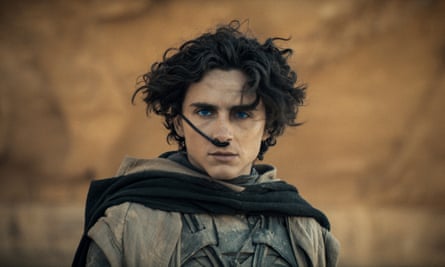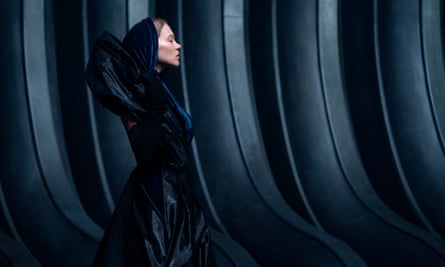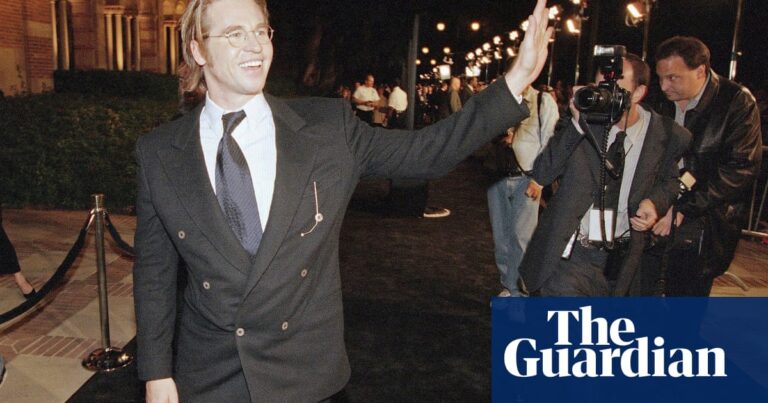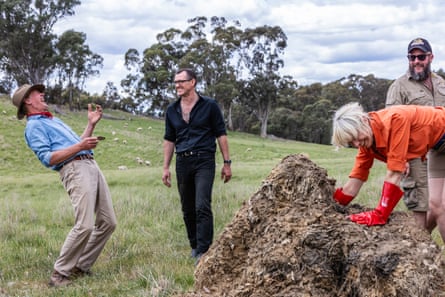T
The second installment of director Denis Villeneuve’s expansive adaptation of the science fiction classic Dune is being released this week. However, it begs the question of what the original author, Frank Herbert, would have thought about it. In this article, we delve into what aspects of the films accurately portray Dune and where they may have missed the mark.
Right – The Atreides
In the world of Dune, the House Atreides is a dominant force that has established colonies. Though they may appear more pure in comparison to the other noble houses of the Galatic Imperium, specifically their sworn enemy, House Harkonnen, they are still driven by self-interest. They seek to exploit the Fremen in order to solidify their own power. From the very start, when Fremen warrior Chani questions “who will be our oppressors next?”, Denis Villeneuve and his co-writer Eric Roth do not avoid the moral complexities of this situation. They do not portray the Atreides as mere heroes rescuing the Fremen from oppression, unlike previous adaptations.
Wrong – The Fremen
In his novel Dune, Frank Herbert explicitly mentions that the Fremen, a group of desert warriors, are descendants of a large Islamic migration. The book incorporates many Arabic terms and ideas from Islamic belief, religion, and customs. Director Denis Villeneuve’s decision to remove most of the Arabic references and use a diverse cast in the film adaptation may be understandable. However, it has resulted in the Fremen losing their unique identity and becoming generic rebels. An alternative approach could have been to recognize Herbert’s original intent and seek input from Islamic scholars and writers to ensure accurate representation of their culture.

Right – Arrakis
Villeneuve’s Dune, while possibly split into two parts, is ultimately one movie that allows viewers to completely lose themselves in the story. In contrast to other science fiction that jumps between different planets, Dune primarily takes place on a single world, making it imperative for the audience to feel as if they are truly there. From the sweeping sand dunes to the rugged peaks and hidden sietch homes, Villeneuve’s portrayal of Arrakis is a fully captivating and believable landscape that stays true to the world that Frank Herbert created over six decades ago.
Wrong – Arrakeen
The bustling capital city of Arrakeen in the novels is filled with traders, smugglers, off-worlders, water vendors, and religious extremists. In Denis Villeneuve’s adaptation, Arrakeen appears to be the same, but it is not fully explored on screen. As a result, the Fremen are once again given limited attention. While in Herbert’s writings, the Fremen are depicted as a diverse group, ranging from the prosperous and leisurely “city Fremen” of Arrakeen to the resilient and secretive warriors of the sietches, known for their distinct “blue in blue” eyes. However, in the film, the Fremen are portrayed as mostly uniform and faceless, blending into the dusty desert landscape.
Right – The perils facing Paul Muad’Dib
In past versions of Dune shown on screen, Paul Atreides has been portrayed as a savior figure, a holy prophet who liberates the Fremen from an oppressive empire. However, this oversimplified approach was not the intended vision of author Frank Herbert. In fact, the crucial line in the Dune series is “no greater calamity could befall your people than to be ruled by a hero.” By fully embracing this morally complex and critical aspect of Herbert’s work, Villeneuve and Roth have created something much more intriguing than the typical “hero’s journey” depicted in previous adaptations.

–
Incorrect – The unfortunate event involving Doctor Yueh
One of the biggest disappointments in Villeneuve’s adaptation of Dune is the portrayal of the traitor, Doctor Yueh. In the original novels, Wellington Yueh is a complex and relatable character, willing to sacrifice thousands in order to rescue his beloved wife and seek revenge against Baron Harkonnen. However, in the film, he is portrayed as distant and detached, without any inner conflict or deep love for his tortured wife, Wanna. This decision detracts from the emotional depth of the story and makes Yueh’s betrayal seem like a contrived plot device rather than a desperate act by a conflicted character.
were trained
The Bene Gesserit underwent intense training.
The group known as the Bene Gesserit, a secret society of all-female members focused on mental and physical training, play a crucial role in both Herbert’s novel and Villeneuve’s film. It is suggested that the Bene Gesserit may have purposefully planted religious beliefs among the Fremen for their own manipulative goals. This concept was overlooked in previous adaptations but not by Villeneuve and Roth, who embrace the idea that powerful individuals may manipulate religious beliefs for their own agenda. This adds a subtle yet thought-provoking element to the films, making them particularly relevant in present times.

Display the image in full screen mode.
Wrong – The mentats
In Dune’s universe, the use of computers is forbidden. After a disastrous war, all “thinking machines” have been replaced by mentats, human individuals who have been rigorously trained to perform complex calculations and make accurate predictions. Director Villeneuve’s film does not delve into this backstory. The intriguing and grotesque “twisted mentat” character of Piter De Vries, portrayed memorably by Brad Dourif in David Lynch’s 1984 adaptation, is not even given a name in the screen version. Additionally, while Thufir Hawat, the Atreides’ mentat advisor, has a significant role in the first film, he is inexplicably absent in Part Two.
Right – The Imperium
Possibly drawing from various historical and contemporary cultures on Earth, such as ancient Greece and Soviet Russia, the world created by Frank Herbert in Dune is undeniably surreal. Governed by hierarchical systems that have existed for 10,000 years and rigid codes of honor and behavior, every aspect of life within the Imperium is closely regulated, from commerce and transportation to military affairs and even assassinations. Using a mix of mystical rituals, elaborate costumes, and unconventional spacecraft design, Villeneuve’s film effortlessly captures this otherworldly atmosphere, almost making the gritty and straightforward society of Arrakis seem familiar in contrast.
Wrong – The Spice
Frank Herbert’s sci-fi novel Dune has mind-bending scenes that accurately depict the effects of psychedelic drugs, despite being written before the “psychedelic revolution” and by an author who claimed to have never used them. However, film adaptations of the book do not capture this same intensity. The Fremen, the desert people in the story, partake in the potent spice for both religious and communal purposes, but this aspect is largely ignored in the film adaptations.
Source: theguardian.com





















